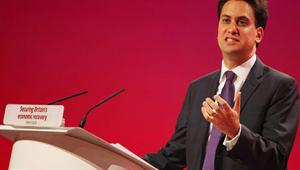Examining Ed Miliband’s election pledge to end the tax loophole, the think-tank said it was unknowable how those who qualified for the status would react to the change, and the revenue impact would depend on details not yet set out.
Announcing the plan on Wednesday, Miliband said ending the status for an estimated 116,000 people could raise hundreds of millions of pounds. Currently, non-doms can avoid paying the same income or capital gains tax on overseas income that UK domiciles are required to pay.
However, IFS researcher Stuart Adam said the revenue impact would be affected by details including the length of a grace period that Miliband said would apply to temporary residents, and how financial vehicles like trust were treated in the revised tax system.
Charges on non-doms to allow them to use the status were paid by 5,100 individuals in 2012/13, raising £226m, the report said.
It is not clear how much could be raised by taxing the foreign income and capital gains of non-doms.
There are three potential sources of additional revenue from Labour’s proposal, the briefing stated. These include abolishing the non-dom status for those currently paying the charge for income remitted into the UK, which is levied if they have been in the country for more than seven years, and abolishing the status for those who have lived in the UK for a shorter period. Revenue could also be raised from removing some other tax advantages from the status in addition to the taxation of remittances.
‘Thus the revenue impact of the policy would depend on details that have not yet been announced (such as the length of the grace period and the treatment of trusts) and on the amounts of foreign money involved, which are not known. It would also depend heavily on how non-doms responded to the reform,’ Adam concluded.
‘The overall revenue effect of such a change is equally hard to predict. To the extent that non-doms who currently pay a large amount of tax [on their UK earnings and assets] leave the country altogether, the change could cost the exchequer revenue. If there is less behavioural response and it turns out there is a lot of money currently untaxed overseas then additional revenue of £1bn or more may be achievable.’




















